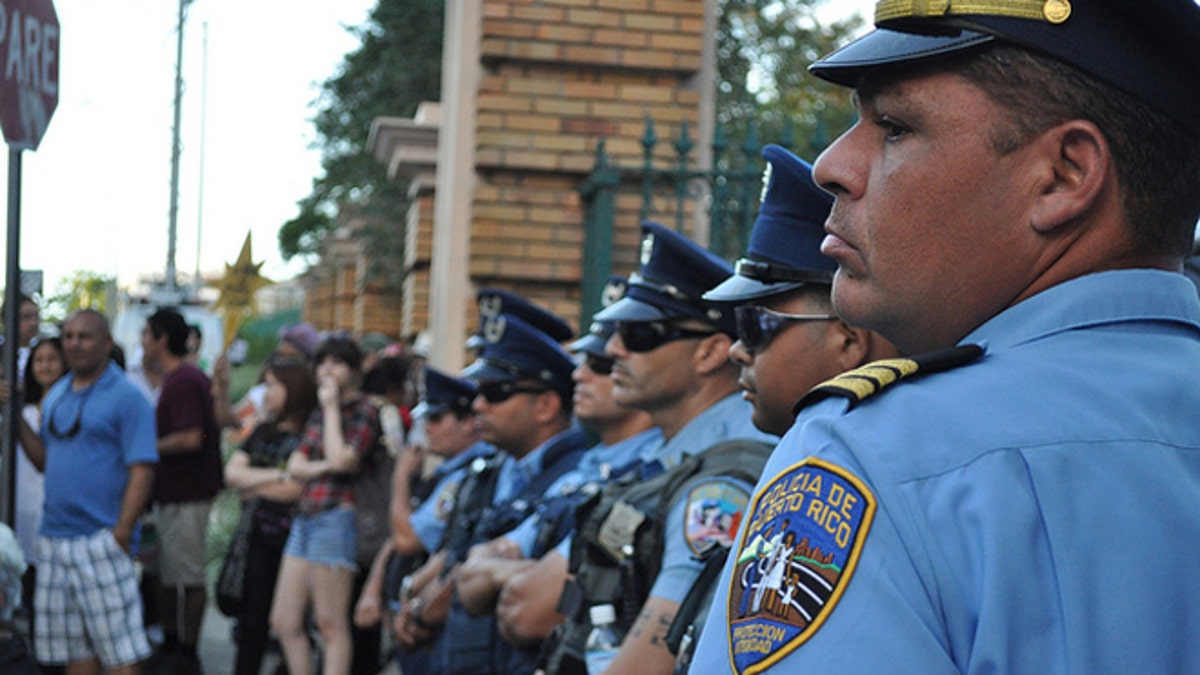
(davsot @ Flickr)
The Justice Department’s pledge Wednesday of $10 million to the Puerto Rican government to combat police corruption, extrajudicial killings and civil rights violations ends two years of tense negotiations that focused on reforming the territory’s plagued law enforcement agency.
The cash infusion follows a DOJ report, released in September 2011, which found evidence that the Puerto Rico Police Department (PRPD) violated the Constitution and federal laws by using excess and unreasonable force, making unconstitutional stops, searches and arrests, and targeting individuals of Dominican descent, among other problems.
“The settlement and the additional resources we are announcing today underscore our determination to work closely with federal, local and tribal authorities to protect not only the safety of our people – but also the civil rights we hold dear,” U.S. Attorney General Eric Holder said during a press conference.
There are problems at all levels of the police: in its pay, its leadership, its training...It’s going to take a while for anything to happen, but this is good first step for the new government.
Holder’s announcement was met with both praise and skepticism from a number of Puerto Rican activists, who said it was due time that Washington did something about the issue. Besides police corruption, Puerto Rico has a seen a dramatic rise in both intravenous drug use and violent crime on the island, with a murder rate six times the national average.
“It’s taken quite a while to get to this point,” Angelo Falcón, president of the National Institute for Latino Policy, told Fox News Latino. “The fact that they’ve finally come up with an agreement is good because this is a really big problem.”
The 100-page agreement, which is the culmination of an investigation by the DOJ that began in 2008, calls for the creation of a use-of-force policy, new disciplinary procedures and better training for police officers and their supervisors. The deal was originally signed back in December, but Puerto Rican officials asked for more time to modify the agreement because of the economic realities the island faces as it comes away from a seven-year recession.
Despite the praise the agreement received, some experts warned not to expect immediate results as the situation in the PRPD is seen as widespread and the Justice Department is giving the U.S. territory 10 years to implement all the changes outlined in the deal.
The 2011 Justice Department report stated that from January 2005 to November 2010, there were more than 1,709 arrests of PRPD officers, with the charges varying from theft and simple assault to rape, drug trafficking, and murder. Hundreds of other officers also engaged in domestic violence; many have been arrested multiple times for harming their partners.
“There are problems at all levels of the police: in its pay, its leadership, its training,” said Rafael Fantauzzi, the president of the National Puerto Rican Coalition. “It’s going to take a while for anything to happen, but this is a good first step for the new government.”
Puerto Rico’s new Governor, Alejandro García Padilla, inherited the island’s problems from former Gov. Luis Fortuño and will be the first leader to deal with the reforms that affect the U.S.’s second largest police force after New York City.
“In the end, the goal is that when the required measures are implemented in full, the country has a police force that, in addition to ensuring the safety of all, ensures the civil rights of individuals and is trusted by the people,” García Padilla said in a statement.
Analysts like Falcón hope this agreement will focus more attention on Puerto Rico’s police, murder and other problems on the U.S.’s “third border.”
“The point is that we focus on the southern border with Mexico and to a lesser extent the border with Canada, but we need to look at the third border: the Caribbean,” Falcón said. “There needs to be more federal attention on Puerto Rico and unfortunately it took the bad actions of the police to bring the attention to it.”
“This is long overdue.”
